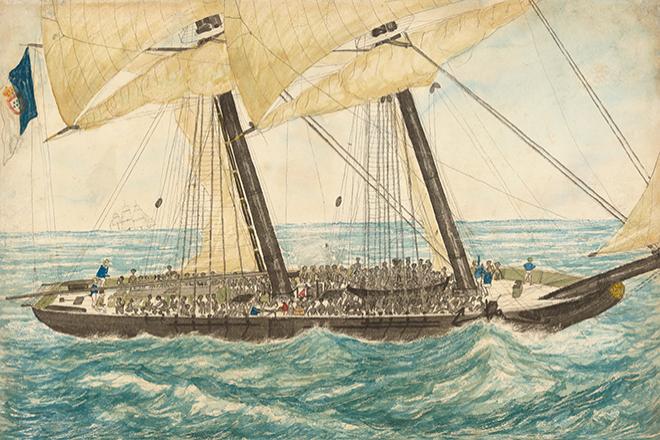Modernity Unmoored: Ships as Material and Metaphor

Credit: Lieutenant Henry Samuel Hawker, The Portuguese slaver Diligenté captured by H.M. Sloop Pearl with 600 slaves on board, taken in charge to Nassau, May 1838. Collection of the Smithsonian National Museum of African American History and Culture.
Resource Description
This series of modules approaches ‘ships’ and ‘boats’ as material and metaphor for thinking about migratory experiences and the movement of peoples, goods, and commodities, as they relate to the idea of modernity on a local, transnational, and planetary scale. The modules focus on literary, visual, and cinematic representations of ships and boats as a basis for engaging in comparative work. Ships and boats are considered not just as physical objects, but as technologies and symbolic objects that speak to the dynamics of circulation and/or extraction in the context of slavery, colonialism, and global capitalism. The modules underscore the role they have played in the establishment and subversion of racial, cultural, economic, and political divides across space and time.



